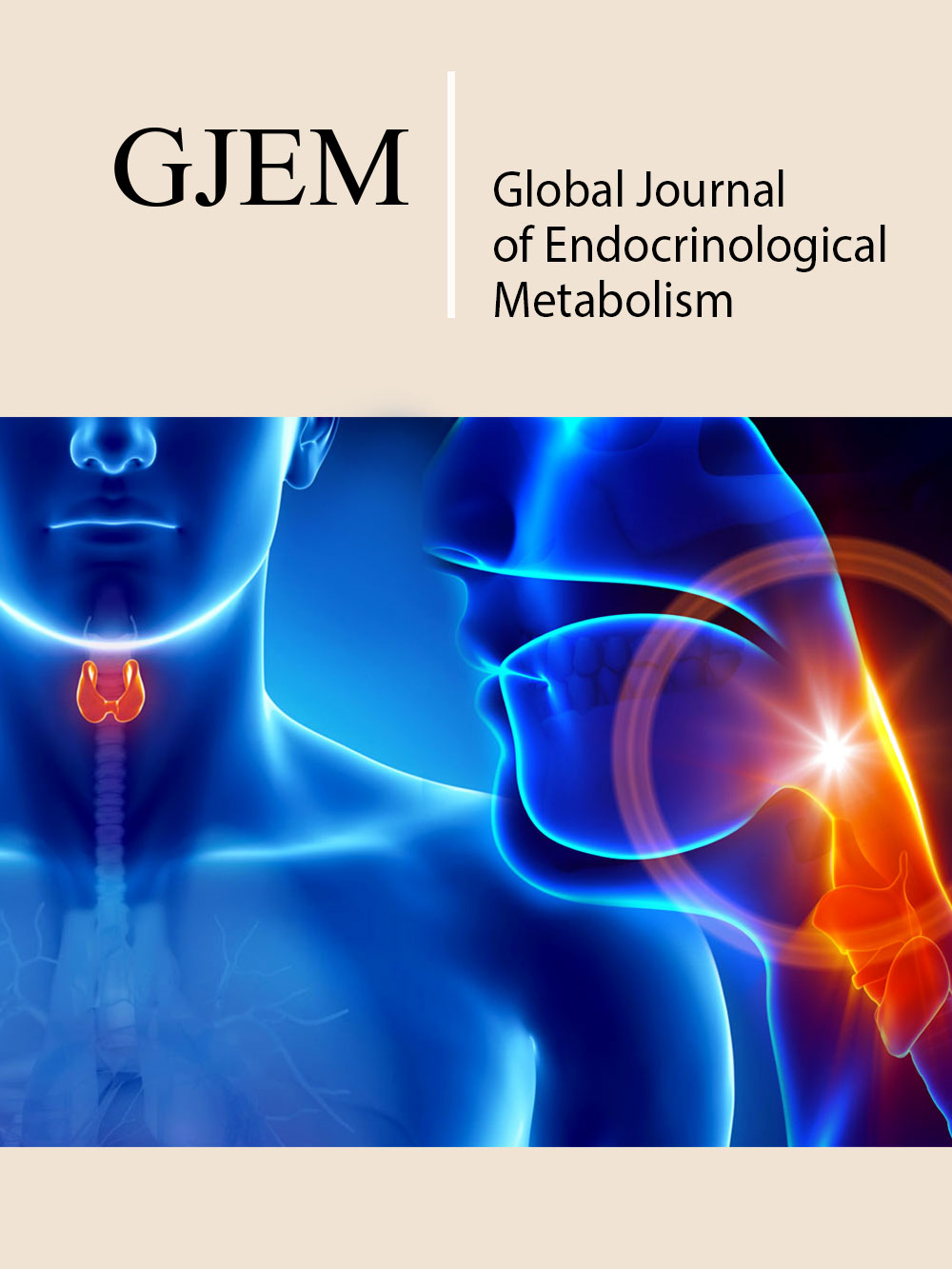- Submissions

Abstract
Global Journal of Endocrinological Metabolism
Role and Regulation of Glycogen Synthase Kinase-3 in Obesity-Induced Metabolic Perturbations
-
Open or CloseJacob J Lemon and Manisha Gupte*
Department of Biology, Austin Peay State University, Clarksville, TN 37040
*Corresponding author:Manisha Gupte, Department of Biology, Austin Peay State University, Clarksville, TN 37040
Submission: March 07, 2022 Published: April 29, 2022

ISSN 2637-8019Volume3 Issue3
Abstract
Metabolic Syndrome which encompasses of hypertension, hyperlipidemia, insulin resistance, and obesity increases the risk of diseases such as cardiovascular diseases, Type 2 Diabetes Mellitus (T2DM), and cancer to list a few. The mechanisms leading to this syndrome have not been fully understood due to the multifaceted pathologies associated with this syndrome. While numerous molecules are being investigated in the etiology of metabolic syndrome, a number of studies have looked at the association of Glycogen Synthase Kinase-3 (GSK-3) and metabolic syndrome given the data that GSK-3 activity is increased with obesity and T2DM. The GSK-3 family consists of two isoforms, alpha (α) and beta (β). GSK-3α/β expression and activity has been found to be significantly elevated in muscle biopsies of T2DM patients and administration of GSK-3 inhibitors to rodent models of obesity and T2DM have improved insulin sensitivity and glucose homeostasis. Thus, GSK-3 is a promising therapeutic target for the management of metabolic diseases including T2DM. Numerous studies using either a pharmacological approach or animal models have investigated the role of GSK-3 in obesity-associated metabolic perturbations including glucose clearance However, this has been a daunting task given its ubiquitous expression, complex signaling, and the two very similar isoforms with some unique as well as redundant functions. Hence, as yet, the precise molecular mechanisms via which GSK-3 causes metabolic perturbations including obesity-induced glucose intolerance, diabetic cardiomyopathy, or cardiac dysfunction are yet unknown.
 a Creative Commons Attribution 4.0 International License. Based on a work at www.crimsonpublishers.com.
Best viewed in
a Creative Commons Attribution 4.0 International License. Based on a work at www.crimsonpublishers.com.
Best viewed in 







.jpg)





























 Editorial Board Registrations
Editorial Board Registrations Submit your Article
Submit your Article Refer a Friend
Refer a Friend Advertise With Us
Advertise With Us
.jpg)






.jpg)













.bmp)
.jpg)
.png)
.jpg)














.png)

.png)



.png)






